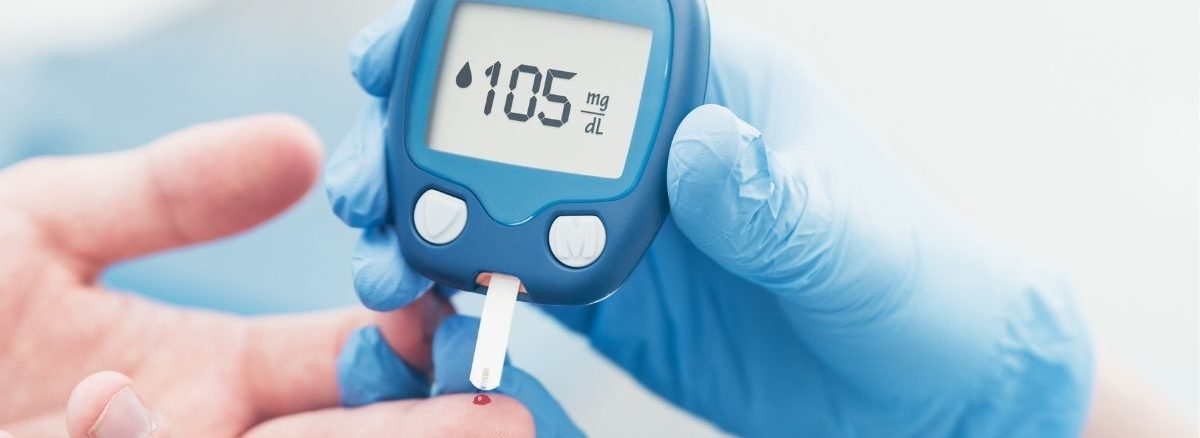What is diabetes?
Diabetes is a condition in which blood glucose levels are higher than normal. Most of the food we eat is converted into glucose which our body uses to get energy.
The pancreas, an organ located near the stomach, produces a hormone called insulin that helps glucose to get into our body cells.
If you have diabetes, your body does not produce enough insulin or you do not use your own insulin properly.
Types of Diabetes
There are several types of diabetes.
- Type 1 Diabetes
- Type 2 diabetes
- Pregnancy diabetes
Type 1 Diabetes
The body does not produce insulin in type 1 diabetes.
Type 2 diabetes
The body does not use insulin properly in type 2 diabetes and may not produce enough insulin. This is the most common form of diabetes.
Gestational diabetes
Pregnancy diabetes occurs when a pregnant woman’s body does not use insulin properly. It increases her risk of type 2 diabetes and the risk of her child developing diabetes.
Diabetes is a serious disease. High blood glucose levels can lead to various health problems over time.
Symptoms of Diabetes
Did you know that you can have diabetes without any serious symptoms?
The first symptoms of diabetes may seem insignificant when in fact they are.
Let us consider eight warning signs that you should not ignore.
- Frequent urination
- Thirst Increases
- Increase Eating and Fatigue
- Unexpected Weight Loss
- Yeast Bacteria
- Wound healing problems
- Blurred Sight
- Problem getting an erection
Frequent urination
A healthy person, on average, urinates 4 to 8 times a day, and no more than once a night.
Patients with diabetes often go to the toilet more often, especially at night.
Increasing thirst
Due to frequent urination, diabetic patients are often dehydrated and, as a result, become very thirsty.
Dehydration can also cause dryness of the skin and mouth.
Increased appetite and fatigue
If your body does not produce enough insulin or if you are resistant to it, then glucose cannot reach your cells. This results in increased hunger and fatigue.
Unexpected weight loss
If the food you eat is not able to provide enough energy for your body, you will start to burn fat and muscle.
This can lead to automatic weight loss.
Yeast infections
Yeast consumes glucose. Therefore, elevated blood sugar levels can exaggerate the chance of developing fungal infections, especially in the private area.
Wound healing problems
People with diabetes may experience cuts, scratches, cabbages or blisters that heal slowly or worsen quickly.
For example, that little bump on your foot may suddenly grow into a sore throat.
Visual impairment
Increased blood sugar levels can cause body fluids to leak into the lens of the eye.
This can lead to inflammation of the lenses, which will impair vision.
Problems with getting an erection
Erectile dysfunction is a common symptom of diabetes in men. This condition can be the result of nerve and blood vessel damage, caused by diabetes.
Note: Please consult your physician if you experience any of the symptoms discussed.
Causes of diabetes
There are several types associated with each type of diabetes.
Type 1 Diabetes
The real cause of type 1 diabetes has always been confusing. One episode may now be referenced. Researchers have discovered a new type of antigen that may be a cause of type 1 diabetes.
Type 1 diabetes is an autoimmune disease, in which the immune system attacks the body’s tissues.
In type 1 diabetes, that attack focuses on the beta cells in the pancreas.
It can be caused by infection or other natural causes.
The virus produces molecules called antigens that cause the body to begin destroying its tissues.
Type 2 diabetes
Type 2 diabetes is caused by a combination of genetic and environmental factors. Obesity or obesity also increase your risk. Carrying extra weight, especially in the stomach, makes your cells resist the effects of insulin on blood sugar.
The disease affects families. Family members share genes that make them more prone to type 2 diabetes and obesity.
Gestational Diabetes
Gestational diabetes is caused by hormonal changes that occur during pregnancy. The placenta produces hormones that reduce the sensitivity of a pregnant woman to the effects of insulin. This can lead to high blood sugar levels during pregnancy.
Women who are overweight during pregnancy or who are overweight during pregnancy are more likely to develop gestational diabetes.
How is diabetes diagnosed?
Diabetes is diagnosed and treated with blood tests that measure your glucose level. A fast glucose test, a random glucose test, and an HbA1c test can all be used to determine your blood glucose level.
Plasma Glucose Testing
Fasting: This test is most effective when done in the morning after an eight-hour fast (no food or drink other than a splash of water).
Post-prandial: This test is performed on the basis of the above fasting glucose test. After fasting, you are asked to eat something and the sample is taken after 2 hours.
Random glucose testing: This test can be done at any time and does not require fasting.
HbA1c Testing
This test, also known as the A1C or glycated hemoglobin test, determines your average glucose level in the last two to three months. The amount of glucose attached to hemoglobin, a protein in the red blood cells that carries oxygen, is measured in this study. You do not have to fast before this test.
Oral Glucose tolerance Tests
Blood glucose levels are measured for the first time after fasting at this test. Then eat a sugary drink. During the first, second, and third hours, blood glucose levels are monitored.


